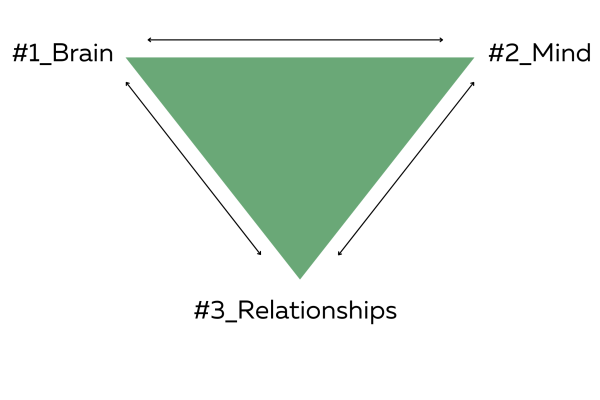How stress ruins your relationships

It is established that chronic stress impairs your brain, body, and mind. [1] In this article I want to discuss how it influences our relationships. Let‘ s use a computer metaphor to explain the brain-mind-relationships connection to the stress. In short, stress messes up with your hardware (brain), dis-regulates your software (mind), and thus affects your interface reflected in your relationships.
- HARDWARE – BRAIN & BODY
Your brain and the nervous system regulate your body and its chemistry.
Through chronic stress your nervous system gets altered. Your brain behaves differently under the stress, and over time chronic stress wires it to respond to situations seriously leaning towards the negativity bias. [2]
That demonstrates how physiological responses within the brain and body affect your mind. In fact, your body and mind are intrinsically linked and can be viewed as two sides of the same coin we define as you.
- SOFTWARE – MIND
Using the language of cybernetics, the mind can be viewed as a network of various communication processes and inputs [3]. While your mind is intrinsically linked with your body, „I am not saying that the mind is in the body. I am saying that the body contributes more than life support and modulatory effects to the brain. It contributes a content that is part and parcel of the workings of the mind” [4]. What Antonio Damasio demonstrates in his book Descartes’ Error: Emotion, Reason, and the Human Brain, is that mind is rooted within the body. In fact, in can not be viewed in separation from the body, meaning – how our body perceives reality, influences our outlook on the reality.
- RELATIOSHIPS
The ways you select, build, and conduct your relationships are directly dependent on your brain, nervous system, mind, its attitudes and your body. What feels safe, good, attractive, or acceptable within a relationship is connected both with your physiological and mental responses. Thus, an efficient problem solving and conflict resolution within your relationships depends on your true resilience and overall well-being.
CONCLUSION: If you are stressed, you are prone to lean towards the negativity bias. Chronic stress has its effect on your brain and body (hardware), as well as influences your mind and its attitudes (software). That reflects within the ways you are able (or not) to build save, healthy, and resilient connections within your relationships.
REFERENCES:
1. Ford, J.H., Kim, S. Y., Kark, S. M., Daley, R. T., Payne, J. D., Kensinger, E. A. (2022). Distinct stress-related changes in intrinsic amygdala connectivity predict subsequent positive and negative memory performance, The European journal of neuroscience, 56(6), 4744-4765 .
2. Williams, L. M., Gatt, J.M., Schofield, P.R., Olivieri, G., Peduto, A., Gordon, E. (2009). ‘Negativity bias’ in risk for depression and anxiety: brain-body fear circuitry correlates, 5-HTT-LPR and early life stress. Neuroimage, 47(3), 804-14.
3. Tretter, F., Löffler-Stastka, H. (2018). Steps Toward an Integrative Clinical Systems Psychology. Frontiers in Psychology, Sec. Psychoanalysis and Neuropsychoanalysis
https://doi.org/10.3389/fpsyg.2018.01616
4. Damasio, A. (2005). Descartes’ Error: Emotion, Reason, and the Human Brain. Penguin Group Inc., New York. (Original work published 1994)
